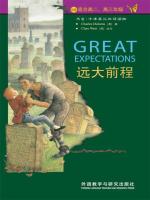My feelings
Volcano
I should say first of all, this book makes me feel sad. Not a Lifetime
movie emotionally overwrought pass-me-the-kleenex kind of sad. I have
read it several times and have never once cried while reading it. But
the book never fails to leave me with this hollow feeling that things
could have been so different. All the not-knowing and mistaken
assumptions that float between the characters in this novel is torture.
Some readers don't like Dickens. He's been called "lacking in
style", as well as a bunch of other things. I think he's like the
Stephen King of the Victorian era. In Great Expectations, you have the
orphaned Philip "Pip" Pirrip who has spent his short life
being poor and being bullied by his sister who is also his guardian. You
have Joe Gargery, a kind man who also allows himself to be bullied by
Pip's sister (his wife). Then you have the infamous Miss Havisham who
was abandoned at the altar and now spends her days wandering around her
mansion in her old wedding dress, hating men and raising the young
Estella to be just like her. At its heart, this is a book about someone
who is given an opportunity to have all their dreams come true, to be
better than they ever thought they could be, to be loved by someone who
they never thought would look at them. We all yearn for something badly
at times. Imagine having the chance to get exactly what you always
wanted. Imagine becoming better and higher than you knew was possible.
Imagine having all of that and then realizing that perhaps the most
important thing you ever had got left behind. Pip was always my
favourite Dickens protagonist because he wants so much and I sympathise
with him. I can understand why he does what he does and why he wants
what he wants. But the saddest thing is that ambition can make you lose
sight of other important things and Pip has a lot of hard lessons to
learn along the way. It's a book that was extremely relevant to the
times when social class was of utmost importance in Britain.
Essentially, the book deconstructs what it means to be a
"gentlemen" and makes a not-so-subtle criticism of a
class-based society. Who are the real gentlemen? The top hat wearing men
of London with all their fine china and ceremony? Pip, who gets a chance
to become one of them? Or Joe Gargery, the rough-talking blacksmith who
even years later tells Pip: "you and me was ever friends"?
There is a powerful lesson in here and I love it.




 京公网安备 11010802032529号
京公网安备 11010802032529号